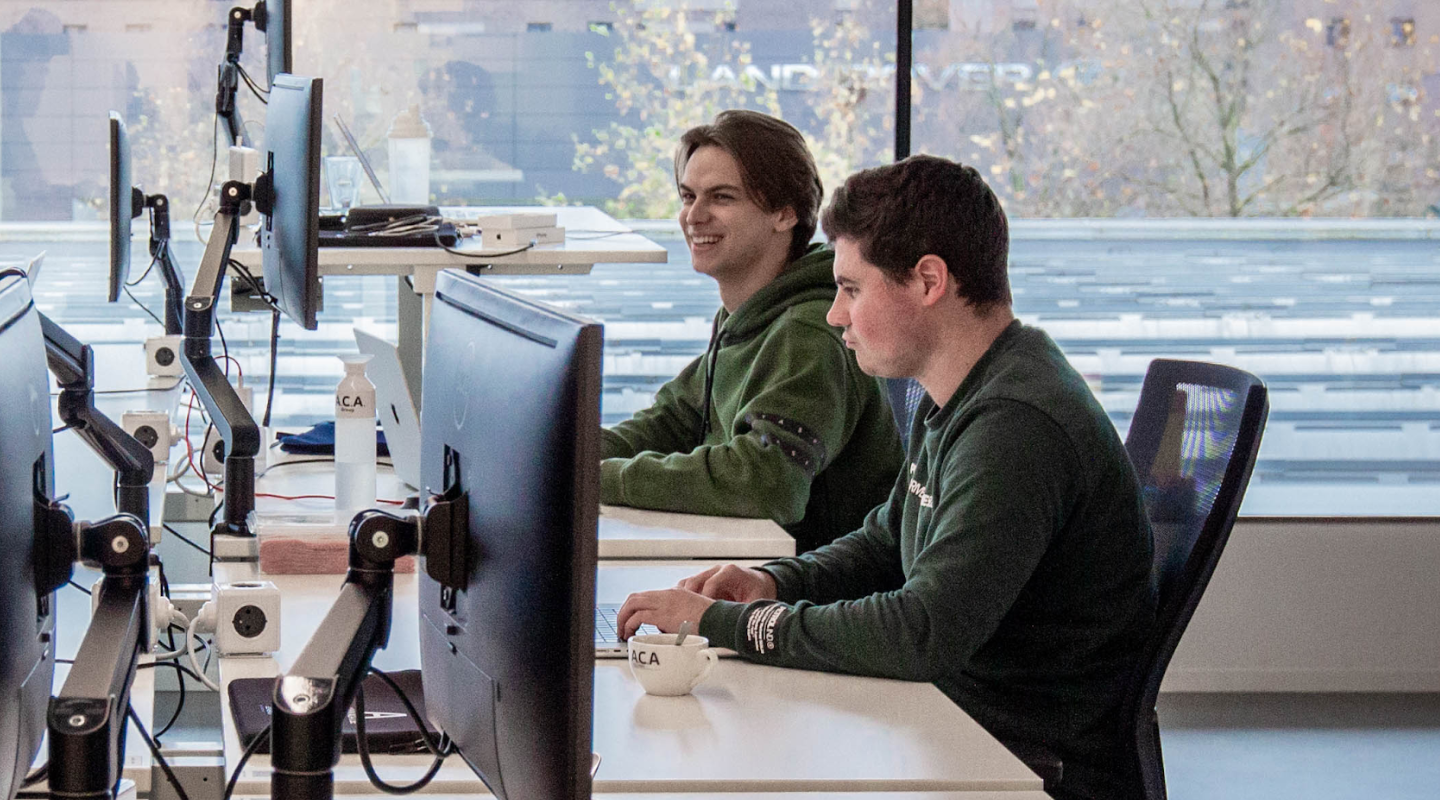
My life as a junior Java developer
In this blog post, I’m going to share some of my experiences as a junior Java developer. What a working day looks like, some useful things you should know and finally I leave you with some advice that will hopefully help you achieve a personal goal or two.
Exercise made me a better developer
The odds of a person studying computer science and them being a gamer is pretty substantial. In my experience, one of the biggest reasons someone devotes their life to the magnificent world of software development is that they are or were once a fanatical gamer. I have a long history with playing video games and I can tell you right now: they won’t help you become a better developer. I do want to acknowledge that they can help to improve your proficiency of using computers in general.
Games are an amazingly effective tool to release a quick rush of dopamine and get you addicted to spending many hours a day playing them. But when it comes to school, they wasted a lot of my study time, distracted me from learning efficiently and eventually made other things in life feel bland.
“But Kiryl, watching TV or Netflix is the same as playing games!” Yes, and those are also a less than optimal way of spending my time. Instead, one of the most obvious things I can recommend is exercising. It improves your health, energy levels and your overall mental state. Hit the gym, go play soccer with friends, join a sports club (Ultimate Frisbee is fun), go for a walk or try something new! The most important part is to actually enjoy being away from your computer. If you implement exercise into your lifestyle by making it part of your daily/weekly routine, you will quickly start noticing the many benefits of being physically active. I even would go as far as saying that exercise helped me become a better developer!

Do you need a university degree to become a Java developer?
I’ve been working for a couple of months now and had the chance to ask my experienced colleagues their opinion. I asked them: “Would having a master degree help me do my current job better?”. We had a great discussion with a lot of viewpoints, but there was one thing we could all agree on: you can gain more hands-on experience while working on the job than spending 2 or more years behind your books.
Personally I chose to go with a bachelor’s degree at a college (Hogeschool PXL) and it’s one of the best decisions I have ever made. Why? In college, I could focus on the applied side of software. How to write readable code, performant and enterprise-focused software, how to use the various tools to manage these big projects, … I practiced my soft skills by giving presentations, working on many group projects, collaborating with real businesses, and more. And all these things improved the necessary skills and knowledge that I need when working as a software developer. Personally, it was the right choice for me and it worked out really well.
So do you really need a Master’s degree? I believe if you’re great at math, physics, algorithms, handling very large amounts of knowledge and you want to understand the complete theoretical side of how software works: go for it! But you definitely don’t need one to pursue a successful career in IT.
Coding is easy to learn, hard to master
As with many things in life, programming is a fun and relatively easy skill to get into, but becomes exponentially more difficult as you try to become an expert. You may be in your first, second or last year of completing your bachelor, and may think that you’re a good programmer already. But let me tell you: there is so much more left to learn. I’m looking at code for 30+ hours a week, and I still feel like a complete beginner sometimes. But while that may leave you a bit frustrated once in a while, it’s also great to experience an environment in which I can learn so much at such a fast rate.
Like learning to drive a car, programming is a skill that takes time to develop (get it?). You can’t start studying it two days before your exam and expect to get a good grade. It’s a skill you have to practice every single day. If you want to learn more about practicing regularly, check out Outliers by Malcolm Gladwell. It should provide you with some insights about the 10.000 hour rule.
What’s it like actually working as a Java developer?
After completing your bachelor, the most straightforward path is to start working as a Java developer at a software consultancy or join the software division of a company. You’re going to learn like a madman, your skills will improve daily and in the meanwhile you’re getting paid to do something you enjoy.
My daily routine as a junior Java developer at ACA IT-Solutions consists of doing stand-ups, meetings throughout the day about any issues or technical implementations, and the rest is spent coding. On my current project, we try to always code in pairs or mobs. This differs from project to project and team to team, but for creating complex software as we are doing, I believe it’s the best and fastest way to create clean and highly performant code. The main advantage of pairing is that you learn to code faster, since a more experienced developer teaches you their many tips and tricks. It’s so important to have someone explain why something is being implemented a certain way and actually letting you think out loud about the functionality of the software being written. Also, you’re going to learn your keyboard shortcuts. The running joke at the office is that we WILL take your computer mouse away if you don’t use the most common shortcuts.
Another great benefit of working at a company like ACA is that it gives you the necessary tools to improve yourself. How? By having an on-the-job-coach, learning from senior developers, getting certifications, meeting new people and having a fun time with your colleagues.
My takeaways
Reading can exponentially increase your knowledge about complex topics like software architecture, object oriented programming, design patterns, and more. The perfect book to get started with is Robert Martin’s clean code. I also recommend bibliographies of entrepreneurs like Phil Knight, Bob Iger, Steve Jobs and Elon Musk. They are fun to read and there is an insane amount of life lessons contained in those books. And at the same time, it teaches you many things about history.
If you enjoyed this post, feel free to share it with a friend who may find this useful. Don’t hesitate to ask me a question or share your own experiences via kiryl.maltsav@aca-it.be or down in the comments below.
import java.util.Scanner;
public class HelloWorld {
public static void main(String[] args) {
// Creates a reader instance which takes
// input from standard input - keyboard
Scanner reader = new Scanner(System.in);
System.out.print("Enter a number: ");
// nextInt() reads the next integer from the keyboard
int number = reader.nextInt();
// println() prints the following line to the output screen
System.out.println("You entered: " + number);
}
}


